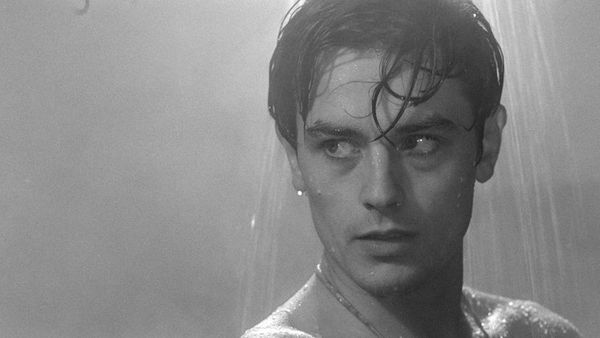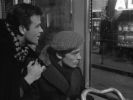Eye For Film >> Movies >> Rocco And His Brothers (1960) Film Review

The Parfundis are peasants from the South who come to post-war Milan, like so many thousands before them, in the hope of a better life. There are five brothers, no father (dead) and a formidable mother (Katina Paxinou), each of whom struggle in their own way to adapt to urban poverty.
Vincenzo marries; Simone goes into the fight game; Rocco is drafted into the army for national service and afterwards becomes a successful boxer; Ciro works in the Alfa Romeo factory and Luca is still at school. Sex, fame, drink and debt almost destroys them, but the saintly Rocco and the steadfast Ciro hold the tattered shreds of family unity together after Simone has torn it asunder.

Tagged on to the coattails of the Neo Realistic movement by critics who like labels, Visconti’s film feels closer to Kazan than De Sica. Emotions run deep and tragedy is as predictable as rust. Rocco’s evolution from a shy country boy to a principled sports hero has enough conviction to overcome sentimentality. Also, despite a rough dubbing into Italian, Alain Delon gives a performance of unexpected sensitivity.
Rocco was a landmark in European cinema at a time when the Italians were dominant, despite the emergence of the Nouvelle Vague in France – Truffaut’s Les Quatre Cents Coup had already opened to critical acclaim – and 1960 would see the premieres of Fellini’s La Dolce Vita and Antonioni’s L’Aventura. A year later came the debuts of Pasolini (Accattone) and Olmi (Il Posto).
Following the passionate historical melodrama Senso (1954) and the romantic fantasy White Nights (1957), Visconti embarked upon his three hour, black-and-white masterpiece that reinvented the naturalism of La Terra Trema (1947) with a powerful storyline, using inspirational actors at the dawning of their careers. Renato Salvatori, as the violent, doomed Simone, must have worshipped at the shrine of Jimmy Dean to produce such an intense performance and Annie Girardot is sensational as the emotionally messed up temptress Nadia. Delon’s beauty is delicately photographed by cinematographer Guiseppe Rotunno and, although Rocco seems too good to be true, especially in moments of anguish, Delon retains a purity, almost an innocence, that makes sense of his yearning for home.
The film caused consternation when it was shown at Cannes and the censors insisted on major surgery before going public. The DVD is the original uncut version. The rape and murder scenes are agonizing to watch, but from a cinematic viewpoint superbly done. This is Visconti at the pinnacle of his powers. The Leopard is two years away. Meanwhile, it’s snowing in Milan.
Reviewed on: 25 Feb 2008


















